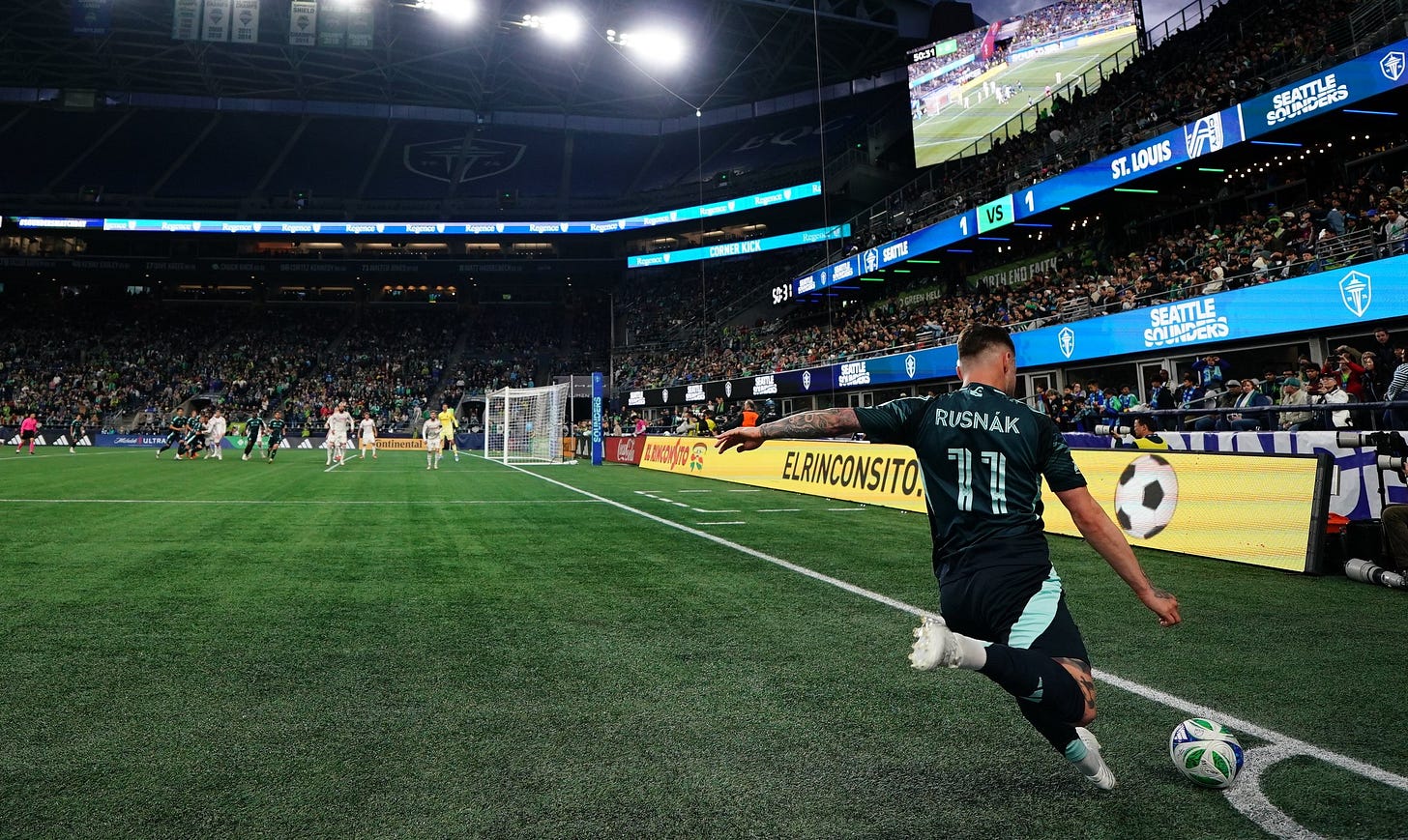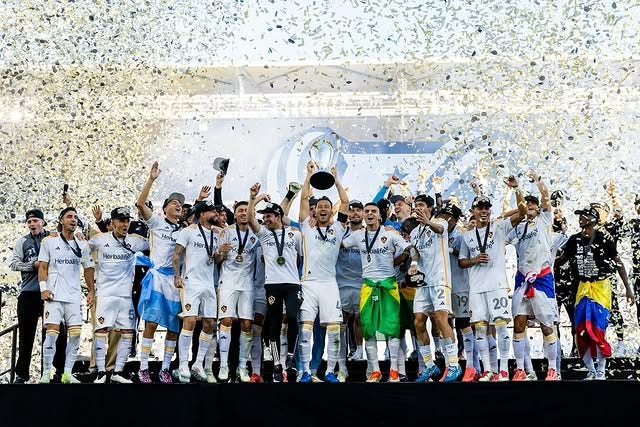MLS Mix 18: Why promotion/relegation could ruin MLS.
For all Gianni Infantino's talk of sporting fairy tales, European football’s pyramid system is often more mathematical than it is magical.
There are no games this weekend as MLS takes a brief mid-season break for the Club World Cup. FIFA is in town, and the game’s content-creator-in-chief has a few pointers on how things should be done.
Never one to avoid an opportunity to self-publicize, FIFA president Gianni Infantino appeared at Fanatics Fest in New York City on Saturday. In a conversation with Fox Sports’ Jordan Schultz, Infantino cast an imperial eye over soccer in the United States.
Infantino said he was certain that the MLS “will be top, top, top. One of the top leagues in the world, for sure,” but went on to make a few humble suggestions from his perch at the top of the global governing body.
At one point he was asked about the incredible popularity of Wrexham AFC and the success of the ‘Welcome to Wrexham’ documentary series. Infantino replied:
“This is one of the beauties of promotion and relegation… In soccer, unlike any other sport, surprises are happening, and the little one can beat the big one, right?”
“You have these surprises. You have these fairy tales of teams,” he explained. “This is something you can bring in this American culture as well, where you don’t have the concept of promotion and relegation.”
He is not the first to suggest that MLS should introduce promotion and relegation. But the trail-blazing Gianni Infantino managed to be wrong in an entirely new way.
Firstly: the idea that Wrexham’s “fairy tale” rise proves the virtue of promotion/relegation. Wrexham’s three consecutive promotions came in seasons in which they were the highest-, highest- and second-highest spenders in their division. The system of promotion and relegation, in that instance, has not facilitated a fairy tale. English football’s pyramid is often more mathematical than it is magical.
Of course Wrexham are an outlier, and not really representative of the system as a whole. But to say that promotion/relegation would help bring more “surprises” to MLS seems to reveal a real lack of knowledge about the league.
In the last ten years, eight different teams have won MLS Cup, the annual championship. No major European league comes close. Take the example of LA Galaxy. The league’s most-decorated team finished 26th out of 29 in 2023; won MLS Cup in 2024; and followed that up with the worst start in MLS history in 2025. Surprises, uncertainty, drama. These things are not lacking in the current MLS format.
In fact, if FIFA’s president really wants to ensure that all MLS teams are given equal chance to succeed, he may want to look closer to home. FIFA’s crowbarring of Inter Miami into the Club World Cup, earning them a huge $9.5 million bonus, was as predictable as it was outrageous.
Throwing in Lionel Messi’s Inter Miami to boost the commercial appeal is not exactly the underdog fairy tale that Infantino seemed to be promoting on Saturday. It would be interesting to see how he justified it internally. “Today I feel… meritocratic?”
Unlike the European leagues, MLS has financial restrictions to prevent power accumulating among a small cohort of super-clubs. It has a playoff structure to ensure that the league title always goes down to the wire. It’s a far-cry from the Premier League, when a relegation battle is often a handy narrative replacement for a title race that had been settled weeks earlier.
Really, the MLS has no need to implement promotion/relegation and there is little interest from the clubs’ perspective either. The ascending drama of the playoffs, culminating with the winner-takes-all MLS Cup game, gives the season the sort of crescendo rarely seen in Europe.
Admittedly, the rival United Soccer League (USL) has approved the introduction of promotion and relegation for its own pyramid, to begin in 2027. But the USL is a challenger league, one with only a fraction of the interest that MLS now commands. It’s aims are vastly different to that of the MLS.
In a US context, MLS is already the No. 1 domestic soccer competition and it does not need quirky new angles to boost the appeal. Instead, it would sorely benefit from a period of structural consistency.
In the past ten years the MLS has grown from 20 teams to 30, and has repeatedly tweaked the playoff format and mix of cup competitions. Having now reached the targeted 30-team mark, it needs a spell of stability to allow the on-field action to speak for itself.
It takes time for those over-arching narratives to form, for unique storylines to develop and for America’s sport-obsessed audience to become ingratiated with the game. It will be the players, the teams and the fans that will help to take MLS to the next level. For now at least, promotion and relegation can wait.







I for one, am rather looking forward with interest to the US Soccer Civil War that is looming in 2027.